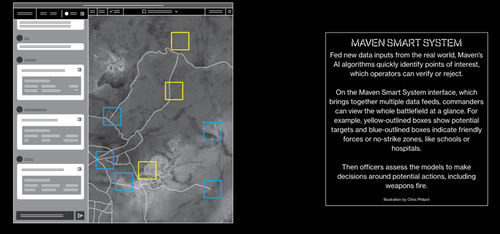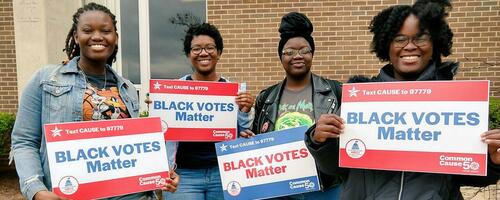by Jeffrey Tucker via The Brownstone Institute,
There was a time.
What seemed to be unfolding was a huge intellectual error for the history books.
A new virus had come along and everyone was freaking out and smashing all normal social functioning.
The excuse turns out just to be the cover story. Still, it bears examination.
Even though plenty of outside commentators said the pathogen should be handled in the normal way—with known treatment and calm while those most susceptible stayed cautious until endemicity—some people on the inside fell prey to a great fallacy. They had come to believe computer models over known realities. They thought that you could separate everyone, drive down infections, and then the virus would die out.
This was never a plausible scenario, as anyone who knew something about the history of pandemics would report. All known experience stood against this cockamamie scheme. The science was very clear and widely available: lockdowns do not work. Physical interventions in general achieve nothing.
But, hey, they said it was an experiment born of new thinking. They would give it a whirl.
When it became clear that the lockdowners had gained sway over policy, many of us thought, truly, how long can this really last? A week, maybe two. Then we would be done. But then something strange happened. The money began to flow. And flow. The states thought that was awesome so they kept it up. The money printers got to work. And general chaos broke out: social, cultural, educational, economic, and political.
It all happened so fast. The months rolled on with no break in the narrative. It became crazy after a time. There were so few critics. We didn’t know it but they were being silenced by a new machinery that had already been constructed for this purpose.
Among that which was censored was criticism of the inoculation potion that was being rolled out and which would eventually be forced on populations all over the world. They said it was 95 percent effective, but it wasn’t clear what that could mean. No coronavirus had ever been controlled by any vaccination. How could this be true? It wasn’t true. Nor did the shot stop the spread.
Many people said this at the time. But we couldn’t hear them. Their voices were muffled or silenced. The social media companies had already been taken over by government-connected interests working on behalf of intelligence agencies. We had believed that these tools were designed to increase our connections with others and enable free speech. Now they were being used to broadcast a preset regime narrative.
Strange industrial shifts took place. Gas cars were deprecated in favor of a new experiment in electric vehicles, thanks to intense consumer demand caused by shortages owing to supply chain breakages. Digital learning platforms got a huge boost because physical classrooms were closed. Online ordering and doorstep delivery became the rage because people were told not to leave their homes and small businesses were forcibly closed.
The pharma companies were riding high of course, gradually acculturating the population to a subscription model. There were attempts to convert whole countries to a health passport system. New York City tried this, along with actual physical segregation of the entire city, with the vaccinated considered clean while the unvaccinated were not allowed into restaurants, libraries, or theaters. The digital app didn’t work however, so that plan fell apart quickly.
All of this happened in less than one year. What began as an intellectual error in public health ended up looking like a digital coup d’état.
Coups of the past featured rebel armies from the hills storming the cities and joined by the military as they invaded the palace and the leader and his family fled in a carriage or helicopter depending on the epoch.
This was different. It was organized and planned by intelligence agencies within the structure of the global state, a great reset to reject the forms of the past and replace them all with a new dystopia.
Initially, the people who said this was a great reset were derided as crazed conspiracy theorists. But then it turned out that the head of the World Economic Forum (WEF), Klaus Schwab, had written a book by the very title that you could buy from Amazon. It turns out to be H.G. Wells’s “The Open Conspiracy” updated for the 21st-century technology.
There turns out to be much more than that. There was an angle to all of this that impacts the mechanisms we use for democratic control of societies. Buried in the flurry of bills shoved through in March 2020 was a liberalization of balloting and voting that would never have been tolerated before. In the name of social distancing, mail-in ballots would become the norm, along with the known irregularities they introduce.
Implausibly, this too was part of the plan.
Researching and realizing all of this in real time has been a bit much. It has shattered the old ideological paradigms. The old theories no longer explain the world as it is unfolding. It causes all of us to revisit our priors, at least those with minds adaptable enough to pay attention. For vast swaths of the intellectual class, this is not possible.
Looking back, we should have known something was up at the outset. There were too many anomalies. Were the people in charge really so stupid as to believe that you can make a virus go away by making everyone stay home? It’s absurd. You cannot control the microbial kingdom this way, and surely everyone with a modicum of intelligence knows this.
Another clue: there never was an exit plan. What exactly was fourteen days of frozen activity going to achieve? What was the benchmark of success? We were never told. Instead, the elites in media and government simply encouraged fear. And then met that fear with ridiculous protocols like dousing ourselves with sanitizer, masking while walking, and presuming every other person is a disease vector.
This was psychological warfare. To what end and how ambitious are these hidden plans for us?
Only four years later, we are grasping the fullness of what was going down.
For those of us schooled in the persistent incompetence of government to get anything right, much less deploy a plan with anything like precision, elaborate conspiracy theories of plots and schemes always seem implausible. We just don’t believe them.
This is why it took us so long to see the fullness of what was deployed in March 2020, a scheme that combined a plethora of seemingly disparate governmental/industrial ambitions including:
1) rollout of subscription/platform model of Pharma distribution,
2) mass censorship,
3) election management/rigging,
4) universal basic income,
5) industrial subsidies to digital platforms,
6) mass population surveillance,
7) cartelization of industry,
8) shift in income distribution and entrenchment of administrative state power,
9) crushing of ‘populist’ movements worldwide, and
10) the centralization of power generally speaking.
To top it off, all these efforts were global in scope. This whole model truly stretches the bounds of plausibility. And yet all the evidence points to exactly the above. It just goes to show that even if you don’t believe in conspiracies, conspiracies believe in you. It was a digital-age coup d’état unlike anything humanity has ever experienced.
How long will it take us to process this reality? We seem to be only at the early stages of understanding, much less resisting.
https://www.zerohedge.com/geopolitical/global-digital-coup-detat

